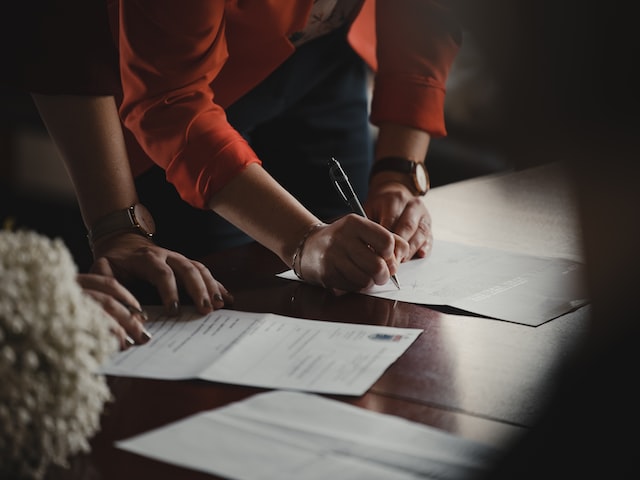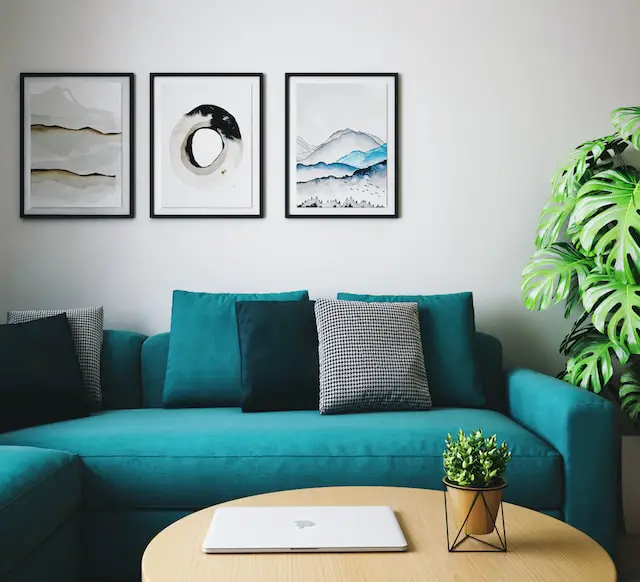Moving out of your childhood home and into an apartment can be thrilling, but it can also be intimidating.
If you’re 18 and looking to get an apartment with no help, the process may seem overwhelming.
But don’t worry—with some planning, a steady income, and good credit, it’s totally possible!
To get an apartment at 18, you’ll need to have a steady income, savings to cover application fees and moving expenses, and a good credit score. You may need a co-signer if you don’t have any credit history.
In this guide, we’ll go through exactly how to get an apartment at 18 with no outside financial help.
From saving up for moving costs to understanding credit scores and lease agreements, we’ll cover all the basics so that you’ll be ready to move into your new place in no time.
Challenges that come with renting an apartment at 18
Renting an apartment at 18 can be a challenge, especially without the support of a parent or guardian.
Credit is one of the major issues when renting an apartment as a young adult. Without credit, landlords may not want to take a chance on you and you could be turned down for the lease.
Another challenge is finances. Most apartments require that you make three times the amount of rent in income, and this can be difficult to do if you are just starting out in your career.
Living independently also means having to pay for all of your bills and expenses. This can be overwhelming if it’s your first time managing a budget and learning financial responsibility.
Renting an apartment at 18 requires extra planning and forethought, but it can also be incredibly rewarding when done right.
Steps to getting an apartment at 18
Getting an apartment at any age comes with a lot of steps, many of which are tedious. There are even more when you are first starting out because you aren’t as established yet.
To make it easier, here are the steps you’ll need to take to get your first apartment.
Preparing for Your Search
Calculate how much you can afford
The amount you can afford to spend on an apartment will depend on your income and expenses.
Generally, it is recommended that your housing costs should not exceed 30% of your monthly gross income, so you should calculate your total monthly income and then multiply it by 0.3 to determine the maximum amount you can afford to pay.
If you’re having a tough time making the numbers work, finding roommates to split the costs with is a great solution.
Know your credit score and start building it
It’s important to know your credit score as it can affect your ability to purchase large items such as an apartment.
Your credit score is a number that reflects how responsible you have been with managing your finances and paying off debts.
At 18, you likely don’t have one yet. You can start building your credit score by getting a secured credit card.
Find a place that fits your budget and needs
To find an apartment that fits your budget and needs, start by considering the location, size, amenities, and cost.
You should also consider what kind of lease you are looking for and if you need to be in a specific area. Once you have determined these factors, you can begin searching for apartments online.
If you’re not exactly sure what to look for in an apartment, this article is for you.
Start searching for apartments and apply for ones that fit your criteria
1. Research online rental websites such as Zillow, Apartments.com, and HotPads to find apartments that fit your criteria.
2. Create a list of the apartments that you are interested in and note their contact information.
3. Contact each apartment complex to set up an appointment for a viewing.
4. If you find one you really like, apply as soon as possible.
5. Don’t apply for too many apartments as they usually do a hard credit check, which will temporarily lower your credit score.
Securing the Apartment

Make sure you have sufficient funds saved up for the security deposit, rent, and other fees associated with the lease agreement
Before signing a lease agreement, make sure you have the funds saved up to cover the security deposit, rent, and other fees associated with the lease.
This is important in order to ensure that you can make your payments on time and avoid any penalties or legal issues that may arise from not having sufficient funds.
Depending on the apartment complex, these fees can include up to the first and last month’s rent and a security deposit in addition to any application fees (which are usually around $50).
Try to get all of these figures upfront so you can see if you can afford it after factoring in moving expenses.
Also, make sure that your monthly rent plus utilities isn’t more than you can afford based on the number you got in the preparation phase.
Prepare copies of necessary documents (e.g., proof of income, references, etc.)
When you are looking for an apartment, it is important to have the necessary documents prepared and ready to submit.
These documents typically include proof of income, such as pay stubs or tax returns, references from employers or landlords (just do your best with this one), and proof of identity such as driver’s license or passport.
Having these documents ready to provide will make your application process quicker and smoother.
Sign the lease agreement and pay any applicable deposits or fees
Before signing the lease agreement, it is important to read it carefully and make sure that you understand the terms and conditions.
Make sure to ask questions if there is something that you don’t understand so that you can be certain of your rights and obligations as a tenant.
Additionally, ensure that any applicable deposits or fees are paid in full before signing the lease agreement. It is also a good idea to keep a copy of the signed agreement and payment confirmation for your records.
Moving In

Gather supplies needed to move in (e.g., boxes, packing materials, etc.)
Moving into your first apartment can be exciting and stressful. To make sure you have everything you need, it’s important to gather supplies before you move in.
Start by gathering boxes. You likely don’t yet have too much furniture or stuff in general given that it’s your first move, so that’s a big win for this step.
You can just get some Banker’s Boxes for simplicity so that you don’t need to mess with taping boxes up.
Click here if you want more details on how to accomplish your first move without too much stress.
Pack up all belongings and arrange for transportation to the new apartment
Now you have to pack everything into those boxes and arrange to get any furniture moved.
Whether you’re doing it yourself or hiring movers, it’s important to take inventory of all the items that need to be moved and decide which ones will go with you in your car and which ones will require a truck or van.
If you can get it all in your car, awesome! If not, you should be able to do a cross-town move with a U-Haul for a few hundred dollars or less.
If you’re not sure exactly what to pack for your first move, this article is for you.
Set up utilities or transfer existing service accounts to the new address
Next, it’s important to set up or transfer your existing utility accounts. This can include electricity, water, gas, and internet/cable services.
To do this, you need to contact the local providers in your area and provide them with your name, new address, and payment information.
Depending on the provider, they may require additional documents such as proof of identity or a copy of your lease agreement.
Your new apartment will likely have you pay them for some utilities, which will cut down on the number of providers you need to contact.
You should also get your address changed with the post office by going to their site.
Set up furniture and other items in the new apartment
The first step is to decide how you want to set up the room. Consider which pieces of furniture will fit best in each space and if they can be arranged in a way that allows for easy movement around the room.
If you got roommates, this can be a fun collaborative activity. Plus, any new furniture you need can be split several ways to get your apartment furnished more quickly than if you were on your own.
Getting your own apartment at 18 can be tough, but you got this!
Renting your own apartment at 18 can be a daunting task, but it is possible.
With some planning and hard work using the above steps, you are capable of making this dream come true.
Start by setting a budget and deciding what type of lifestyle you can afford.
Then start saving up as much money as you can to cover rent and other costs like furniture and utilities.
Once you have saved enough, look for apartments in your price range that meet your needs.
Consider the commute to work or school, proximity to public transportation if needed, neighborhood safety, noise levels, and any amenities that might be important to you.
You may have to make some compromises along the way, but with perseverance and determination, you will find an apartment that fits your needs.

